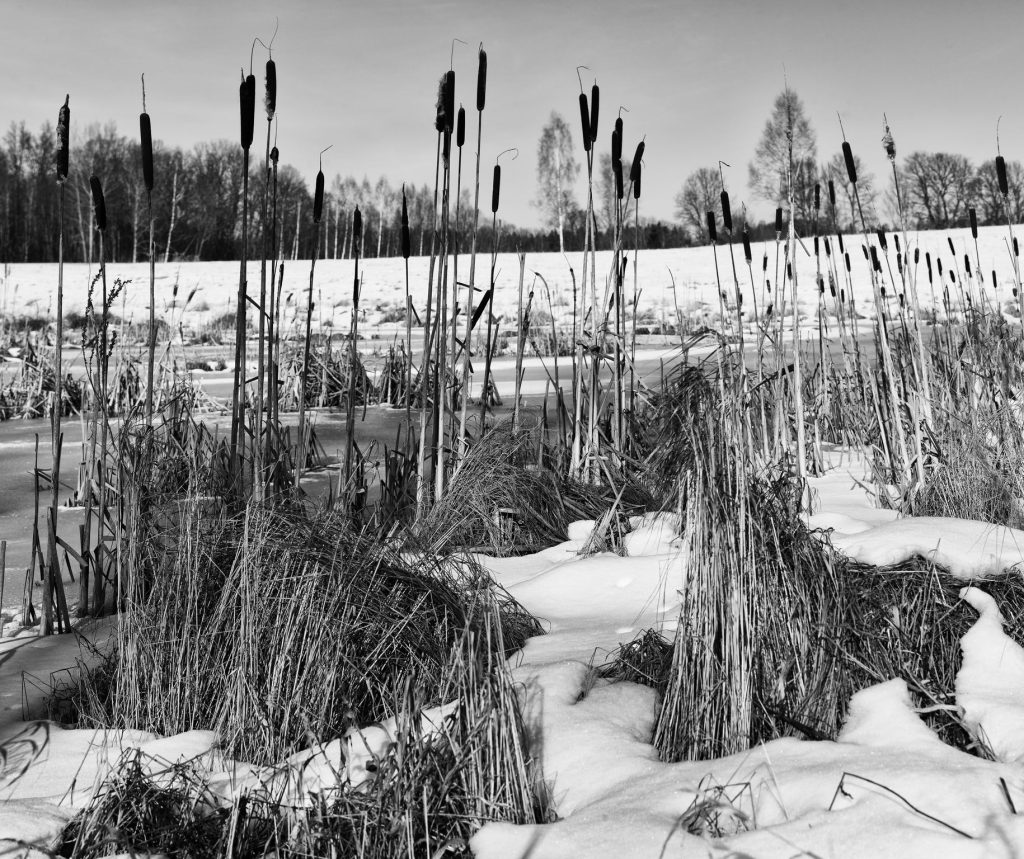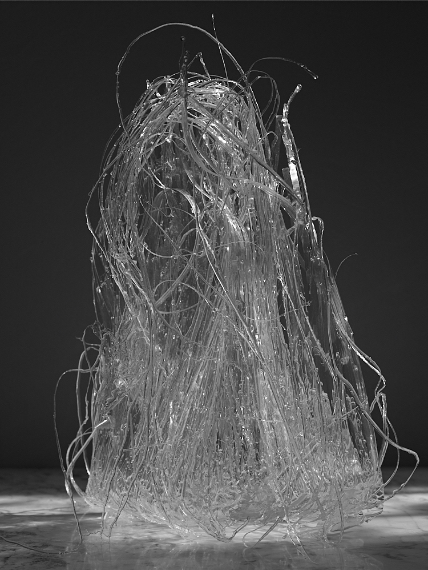Urzula Glienecke is a Latvian theologian, artist, activist, and member of the Association of Latvian Lutheran Women Theologians. She currently lives in Scotland, is a member of the Iona Community and a chaplain at the University of Edinburgh. Urzula travels widely and has worked, studied, and lived in Norway, Germany, Spain, and Ireland. Urzula cares about natural diversity and environmental protection. She is enthusiastic about working with those who are often overlooked and marginalized in society.
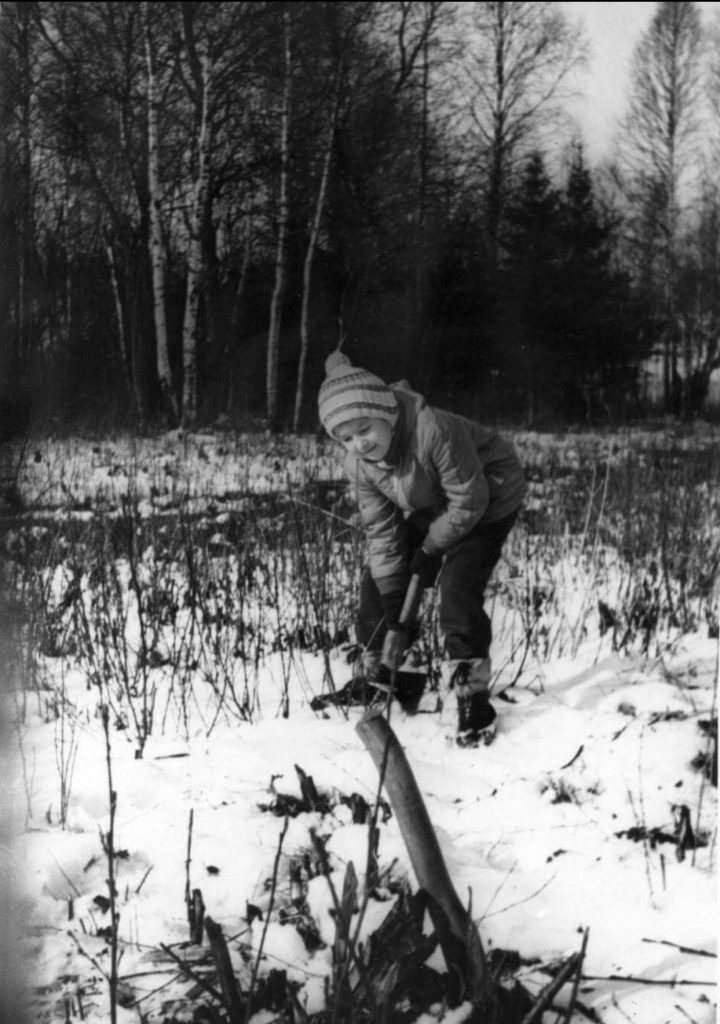
What is the prism you apply when looking and thinking about these three entities – Creator, creation and creating?
Urzula Glienecke: The very first things that I think about in this context is nature and the natural sciences. Nature was my first love. I am still extremely interested in biology, zoology, the environmental and climate sciences. As a child I spent much of my time in nature, and I still do. I grew up with scientists and you could almost say that I grew up in the Academy of Science. We had a Nature Society where scientists and their families got together twice a year. Once a year we went somewhere to volunteer, for example, one place was Lake “Āraiši”. These were projects related to biology, nature conservation, historical topics. The second time every year, in a warmer weather, we went to visit another project. That was particularly important to me.
I started reading early, around the age of three. My first books were not children’s books. They were from the series ‘Science’ and ‘Planet’ and through them I was travelling around the world, at a time when that was not yet possible.
I had a difficult, traumatic childhood. There was violence and things that were not beautiful. I think that one of the things that helped me to be strong and to survive was my connection with nature and books. I spent much of my childhood outside, in nature. My grandmother lived in Smiltene, where there are thick, big forests, and since I started walking on my own, I spent a lot of time foraging – picking, mushrooms and berries, and observing nature, waiting to see the animals and things I had read about in books. Nature was also my first unconscious contact with God.
My grandmother was an organist. She did not know much about theology and was discussed in church, but she thought it was a good thing. Despite the Soviet occupation, she played the organ for 33 years in various churches in Vidzeme. I went with her.
She said that I, from the age of about three, would often stand outside her house in the evenings and I would look up at the sky, as if praying. I remember it because I did pray indeed. I didn’t know who to pray to, so I prayed to the “Big Tiger in the Sky”.
Nature and all the wonder that nature is, led me to God. Step by step I began to search – what is said in church, what is theology and what people believe in. The first group I joined was the so called “basement group” lead by pastor Aida Prēdele. There were many young people there. We had the first parish camps – in Strutele and Cesvaine. These were the first places where I started to ask my theological questions, to learn songs, to learn about the Christian faith. Interestingly, almost all the people who were in Aida’s “cellar” group have become pastors, and we even have one dancing nun!
Being here in Scotland and on the Isle of Iona, nature and creation are still close to my heart. I could say that in nature I experience God closest, but also in being with other people, being in communion, being in liturgy and song, yes, and especially being in the midst of creation and feeling the Creator through it.
Is art a reflection on these experiences or is it something completely different?
U.G. I think it is all deeply connected. For me, art is another language. I started making things with my hands at an early age. I made things out of anything and everything – foam, wood, bones, anything I could find. At that time, it was an expression of creativity. Later, when I started to do art more seriously and intentionally, it was an attempt to find another language, not just to write and talk about faith, God, creation, about the world, pain, joy, but also to work with these questions visually and in three dimensions. Looking at the art that I have had the pleasure to create, I see that al the forms I have created are very organic, they could easily be found in nature – shapes of various plants, deep sea animals.
Does being a chaplain, while fulfilling your primary tasks, leave time for art?
U.G. Unfortunately, no. I have always enjoyed art. It is especially important for me to go to exhibitions, visit museums and see what is happening in the world in this field. One of my first jobs at the University of Edinburgh was organizing an exhibition. It was about spirituality in Japan – my husband Michael’s photographs, my poems translated by Japanese theology students. But to do some bigger art project on my own, I don’t have the time or the energy, and I miss it very much, and I do hope to be able to return to art soon.
My role at the university is quite new, both for myself and in general. I started a little over two years ago, and that was when it was still covid and everything was closed. Recently we are rediscovering and rebuilding, but it has been a very intense and exceedingly challenging time. I have spoken to other chaplains who have been in the job for 15 years and they all say that this is the hardest time they have ever faced. It is also because people are still struggling with the trauma that comes from the pandemic. Many students left school without meeting a single person – they started university on their own and did everything online. And then there are the things that are happening in the world right now.
There are just over 60 000 of us in this university and if something is happening anywhere in the world, there is bound to be a student or staff member affected by it. We have quite a large number of people from Ukraine, Palestine and the Gaza area, so we have students and staff who are connected to that situation and that pain. We have different groups who have very different views on what is going on. The conflict is not only external, but it is also here at the university. We try to listen to everybody and be present to all.
One of the most important things for me is the issue of justice. If something unjust happens, something violent, then it is particularly important for me to do something about it. The situation in Gaza and the situation in Ukraine are big at the moment. Also the natural disasters – the situations in Malawi and Syria last year, and other conflicts, so it is a challenging time in that sense. On the one hand, it would be very important to put it out in the arts, but it takes time and energy, and at the moment the priority is to be present to those who are hurting.
Thinking about these challenging times and different ideological perspectives that cannot live with each other, how is being present central to theology? What is good theology in times of confusion, war, and conflict?
U.G. This is a question that has been close and important to me for a long time. Both because of what happened in my own life, starting with the difficulties of my own childhood, and everything connected with the Soviet period, but also because of what happened to Latvian women in ministry. It was extremely difficult and painful. Basically, I lost home because I could not follow my vocation.
As I have worked more and more with people who have experienced trauma of various kinds, I have always wondered: God, where are you in all this? Classical, historical theology has often said that God is all-powerful and God can do anything and so on, but that is not my experience. I think God works in a very different way. Talking to people and listening to their stories over the last 30 years – people’s war experiences, family trauma, and other situations – I have over and over again experienced that there are no easy answers, but God is still there. It is not God’s will that these terrible things happen. Many things happen because of us, because we choose to do these things, we choose violence. Other things happen because such is nature and there are earthquakes and floods. Although, especially recently, it is also our responsibility, for what we have done to nature in the last decades and longer. Our activities have had an impact and, therefore, natural conditions are becoming more problematic.
It is not God’s will that these things happen. If we want to, God offers that we can go through it together. Despite the pain, despite the trauma, there are good things that can happen in it. We can grow, become more sensitive to other people, to nature, to our world and creation. And it is our choice – if we walk with God, something worthwhile can come out of it.
One of the things I remember from my time studying at Heidelberg is the story of a boy who was hanged in the concentration camp. Often in concentration camps people were executed in front of other people – as a warning and a punishment. This story is about two Jews who were forced to watch people being hanged. One of the murdered people was a young boy. He could not die quickly; he had a hard and painful death. One of the Jews asked the other, “Tell me, where is God?” The other said: “Don’t you see? He is hanging there.” With that saying that God is present in the suffering. It is not God’s will, it is not God’s plan, but God is present when people or life do something hurtful to us. God also calls us and encourages us to confront injustice.
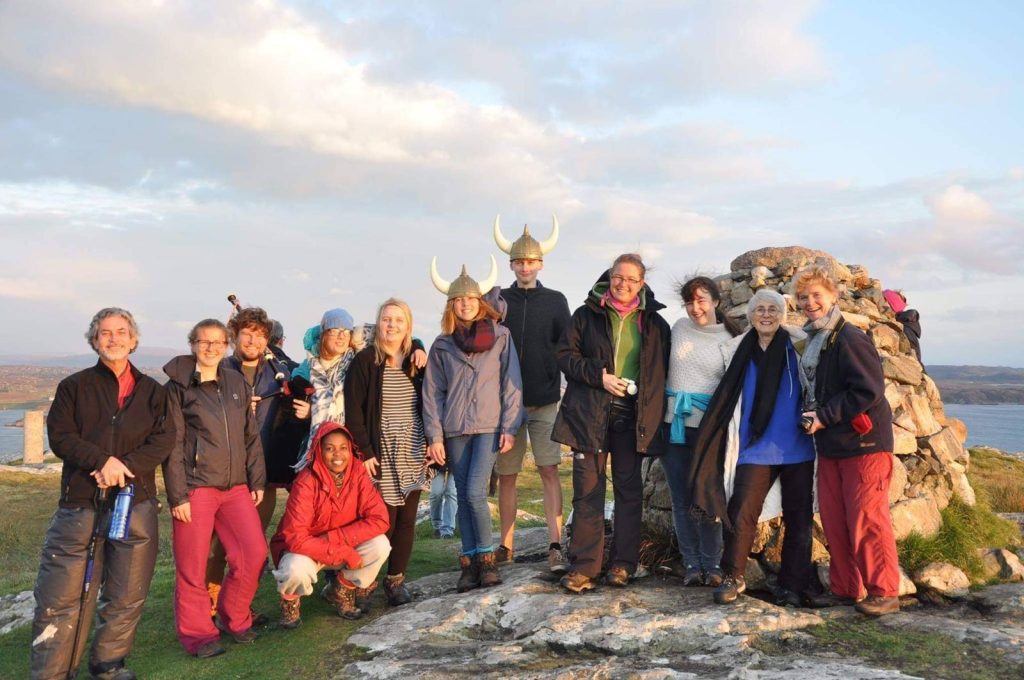
You mentioned Iona community, can you tell a little more about it, are you still actively involved with the community? What is it about Iona that is personally meaningful for you?
U.G. The Iona community is my spiritual home, and it means a lot to me. All those decades since the ban on women’s ordination in the Lutheran Church in Latvia [the gradual shift against ordaining women started in 1993 and resulted in changing the constitution of the Church in 2016] were very difficult for me, I would say that it was like walking through nettles. Since I left Latvia, I was always in a foreign country and it was very difficult to find a place of belonging, a place where I feel at home.
I had biblical seven years in one country, seven years in another and then in a third. When I was in Spain, I had my first contact with the Iona community.
I felt that I had lost the church. The problem was that the conservative churches were very often active and had a sense of communion, but frankly, they had a terrible theology – the devil and hell, and punishment, not to mention the role of women in the church. However, many of the more liberal churches, in my experience, had better theology, but there was no community, so I thought, I will throw the whole “church thing” aside and go full time into the arts.
But something was missing and while in Spain we started going to the Anglican church, and suddenly there were these liturgies and songs from Iona. What appealed to me was that they were very connected with nature, with themes of conservation, inclusive language, justice. Then, I asked Google, what is this community? I read about the beginnings of Iona, and subsequently went to work for a while in their nature center on the neighboring island of Mull. People who come to the nature center often have a disability, there are groups from prisons, children and young people from cities, people who are not regularly out in the wild. Here everyone has the opportunity to spend time in nature.
Later I was on the Iona Isle as a visitor and pilgrim. My husband called and said, did you know that there is a job opening to which you could apply. I had two days to apply. So I started working on Iona in the middle of the season, when we have about 90 pilgrims and about 30 volunteers staying with us every week. I started to run the program for both centers because the person who was in charge of the program went on holiday and never came back. I started to learn what was going on and how things are done and I loved working there, and I think it is still my favorite job.
Then I started the process to become a full member of the community. It is a four-year process and then there is a consecration. It’s not a role you’re in forever, but the belonging to the community is renewed every year when the question is asked if you are still “with us”. Sometimes people take a break for a while, others remain very active. It is a dispersed community and its members live in different parts of the world and we support each other and work for social and environmental justice.
I find it particularly important that it is an international network connecting people all over the world. The liturgies, the songs, the language, the values, and the fact that we can support each other are all meaningful. Good things also came out of covid times – such as online services. Now they are once a month, but in the hardest times during the pandemic, when people were isolated and lonely, they were organized every week.
I ran programs on the Isle of Iona in 2016 and 2017 and the only reason I am not there anymore permanently is because the facilities needed repairs and the program and then came covid. At the moment, only one of the two centers is open, the other needs further repairs. I am still running the program on the island for a few weeks.
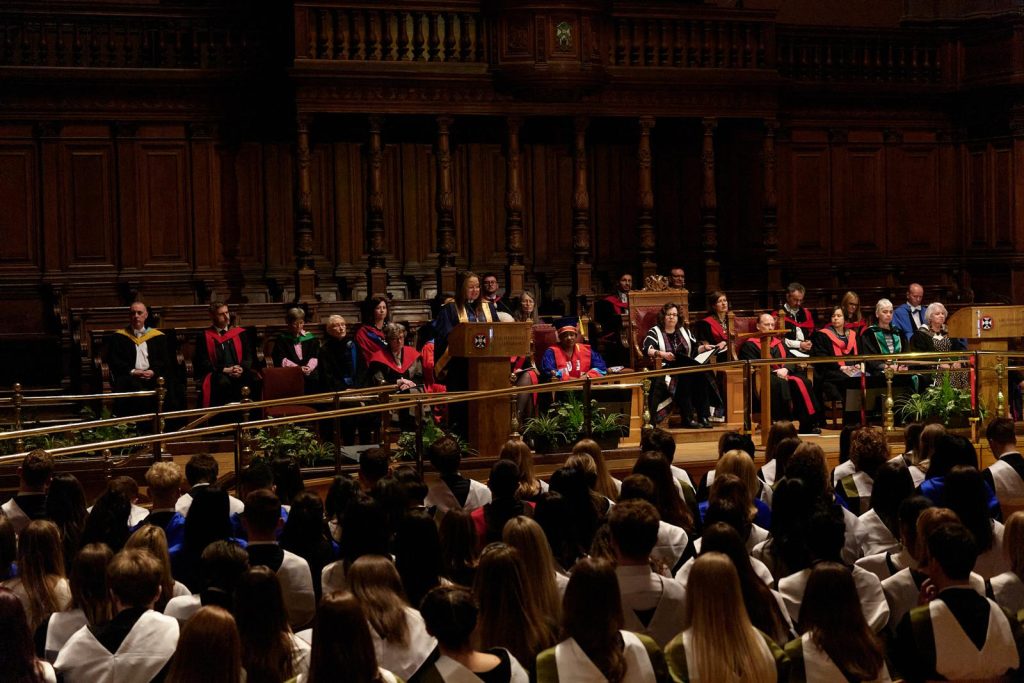
After Iona, did you prepare for ordination and immediately start work at the University of Edinburgh, or did you serve elsewhere?
U.G. It was all quite complicated. One of my difficulties was that I had never felt called to the ministry in a traditional parish. From the very beginning I was convinced that my ministry was different. At that time, still under Archbishop Kārlis Gailītis [Gailītis was Archbishop of the Latvian Evangelical Lutheran Church from 1989 until his untimely death in 1992], we had a conference on youth work and I had the great joy and honor to be chosen as the coordinator of youth work in Riga. I believe that this would have been my path. Also after that, I studied Youth and Student ministry in Norway. I was very involved in working with young people. I enjoyed it very much and I was very happy. Then, when the changes that happened in the Lutheran Church in Latvia, it all stopped.
I was not ordained and in the churches I was in, in the countries where I lived, I asked – what are the ministerial possibilities? It was always complicated and lengthy, and the simplest would have been parish ministry. I was in parishes for a while, but it didn’t feel like my place. I was very happy in Iona, it was really my thing where I flourished and could spread out my wings. When the centers closed, it was a dark experience, like being in a deep hole, and I had to ask – what next?
I started working in the Anglican Church because I thought it would be closer to my Lutheran tradition, but nothing moved forward. Then a pastor who was visiting Iona with a group, said to me, why don’t you take a look at the Church of Scotland. Yes, it is different, but why not try? Then, suddenly, things started happening. The Church of Scotland welcomed me with open arms. You can rarely say that about any church, but the Church of Scotland showed that they were imaginative and very open in finding a way that I could get into the system. Because of my education and experience, I went through an Admissions Committee with ordained pastors from other churches. I then had probation – 15 months in a particular parish, in my situation it was Greyfriars Kirk in Edinburgh, and then I had to find a place to be ordained. Chaplains are not normally ordained; this is more of an exception. But, people knew my story and my pain and what had happened on my life’s journey, and the Edinburgh Presbytery voted to ordain me as a university chaplain. With this ordination, if the call would manifest so, I can also serve in a parish. However, I still feel that my vocation is an alternative one.
How does it go with “flapping your wings,” thriving as a university chaplain? Is there enough creativity and opportunity to work in an individualized way?
U.G. There are opportunities and there are also challenges because it is a large organization. This means that there is bureaucracy, that there are some things that are harder to do, but there is also a lot that is free and imaginative. We do a lot of pastoral work that is not explicitly religious – we work with people of different faiths. We have what we call a listening service. Both staff and students have that opportunity if they want to talk to someone. We organize support groups, we organize exhibitions, lectures, talks, we bring people together. I also like to organize smaller or bigger pilgrimages. My work is very varied.
What are the greatest joys of a university chaplain?
U.G. I would say those are two things. Seeing and experiencing that people change, that people who are suffering and traumatized find healing, new strength, and new beginnings in their lives. The second thing is to bring people together. For example, last year we had an event where Muslim, Jewish, Buddhist students came together, also students without a particular faith, and talked about experiences of anti-Semitism, Islamophobia, discrimination and exclusion. We shared what it is like when people become a community, stand together and support each other. It is a pleasure to see this coming together of very different people with different experiences. At the end they said – we are not so different after all. I enjoy working with organizations like the Grass Market Community Project, which is a project where people who are struggling, who have experienced trauma, come together and then we bring them together with students. One of those projects is that the students get to know the participants here in Edinburgh and then go to the Isle of Mull, which is part of the community of Iona, for a week for a nature program. It is such joy to see people gain confidence, joy and freedom.
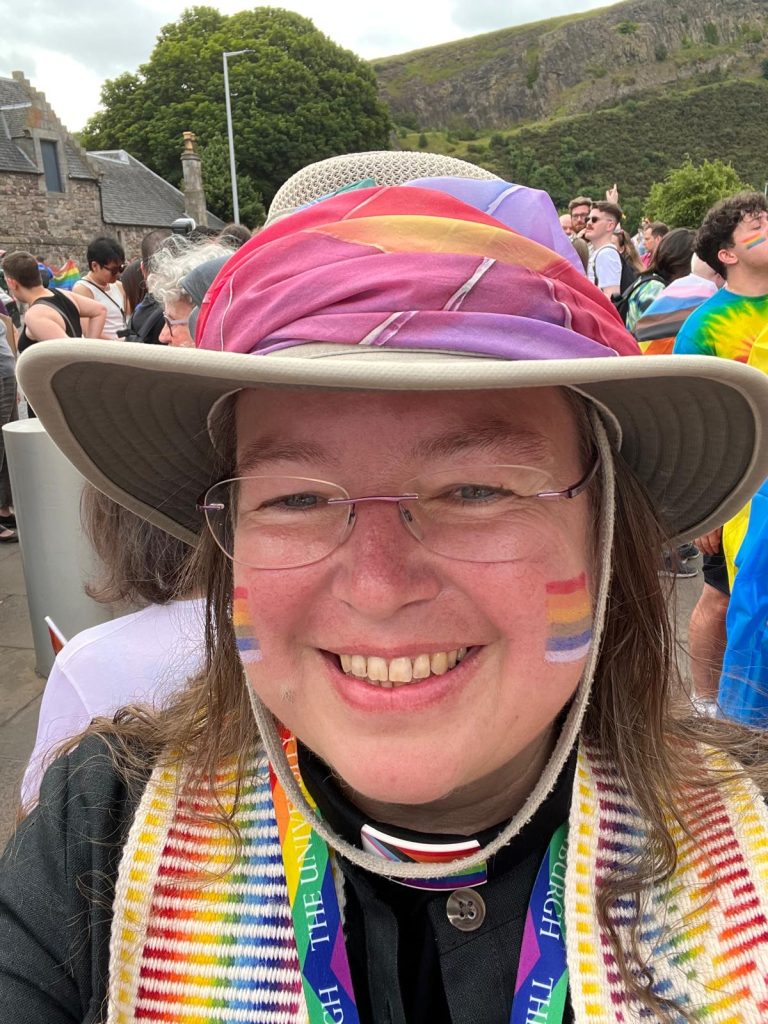
Are there any new projects you are working on that inspire you?
U.G. I love writing liturgies. It is one of the great joys when Iona community or another organization asks if I could write something. I really enjoy it. I have just finished writing for Good Friday, which is in a book published by Iona with materials for Holy Week. We plan to have an ecumenical service with the United Reformed Church, the Episcopal Church, the Church of Scotland, we will be using those materials for Good Friday. We will also sow seeds, because the theme is from the book of Isaiah about a plant that grows through dry, hard soil. We will talk about that, sing, pray and also sow seeds and then observe what grows from them. Often we dwell in our heads – words, writing, speaking – but it is important to get out into nature – to sow something, plant something and see it grow.
How do you integrate these different ministries? They seem interconnected, but the spectrum is so broad. Is it easy to balance and harmonize?
U.G. The diversity of what I do is quite new to me. My role at the university is such that I can shape it. When I came into it, there was not much happening, mostly because it was the covid years. So, I was able to look imaginatively and ask, what is possible, what could be done. Some things did not work out, but others did.
We have students and faculty from vastly different countries and disciplines, and because of that diversity is there, and I like that very much. It is a joy when I write reports and I see that my work is really varied – from classical pastoral work to, for example, leading a memorial service for Dolly’s dad [Dolly, the sheep] – it was fantastic. When sir Ian Wilmut passed away, I had the pleasure and honor of leading his memorial service. I was able to meet the people who collaborated with him and those who are taking over his role. I could learn why they did their research, because usually people say, oh, yes, Dolly, cloning… But actually what they were doing, they tried to create a medicine made in sheep’s milk, and from that research came many other medicines, the so-called biologics, medicine for arthritis and for several forms of cancer. The last work that Sir Ian did was his research into Parkinson’s disease. The sad fact is that he himself died of this illness.
There are the other things too – exhibitions, speeches. I must be careful not to do too much. It is quite easy to burn out because there are so many needs everywhere. Lately I have come up with a system – I sift through things that are really important and those things that give me joy and energy, and those I choose to do. The things in between, I say ‘no’ to. I think I have never said ‘no’ so many times in my life as in the last few months. It is very, very difficult and it is a whole new skill that I am trying to develop.
I enjoy things that have to do with diversity and nature with art and beauty and working with people in general. It is difficult for me if I am alone at home. I find it best to be with others and, if possible, with as many different people as possible.
You have had such diverse experiences with communities and the Church, when you reflect on these experiences and what they have taught you, what do you see for the future church?
U.G. I see hope where people come together and listen to each other, where they don’t try to exclude, punish or criticize others. Hope is where we can say – this is your pain, this is my pain, now how can we help each other together, how can we change society, the law, the church, so that it is good for everyone. It is the same with the protection of nature – this is our world, our creation. What can we do to ensure that we do not destroy it? In those places where people come together spiritually – praying, singing, being in liturgy and worship, thinking about justice for all, there I see hope.
It used to be that people had to come to church, but now we live in a different time. Our task is to go out to the people, to meet young people and to ask them – what is on your heart, how we can support you, how we can work together? There I see God at work and there I see a future for the church. The exclusionary and high-handed way of saying, we have the truth and you must come to us, it does not work, and if it does, it does not work in a healthy and good way.
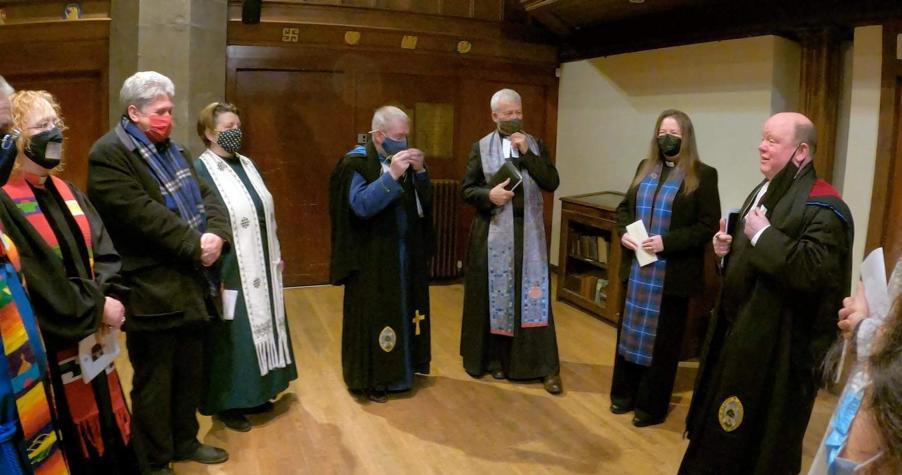
When you think about justice and the theological and ecclesiological landscape, what should we talk about, especially in the context of Latvia?
U.G. One of the big questions is about the role of women in the church. It was very interesting for me to learn about current research that is done in Latvia, and to hear about the answers that people give as to why women should not be ordained. How absurd the reasons often are! You have to listen to the pain that people have experienced as a result of excluding women. I can speak of my own experience and that of many other women who have had their trail cut. There have been decades that have been difficult, painful and sometimes hopeless. It is important to listen to that and ask the question: is this really what God wants? Is it really the way of love to say that we will exclude some people?
Another question is the protection of nature. It is an especially important thing in Latvia. Sometimes I have seen churches getting involved in it, but so much more could be done. Another current and critical issue of justice is that of traditional and non-traditional families and relationships. There is also much pain and suffering around these questions.
I recently made an interesting discovery – I was looking back at my theological research. I could not have imagined that there was a correlation between my undergraduate thesis that is on Apartheid in South Africa and the churches within it; my Master thesis on Missouri Synod, comparing it with the Second Lutheran Church in the USA; and my Doctoral thesis on the dispute between conservative and ecumenical churches, looking at the future of mission. When I looked at what I was actually writing about, in all three cases I was concerned about how the church in different situations, with the same Scripture, often coming from the same tradition, react in completely opposite ways. For example, in the Apartheid situation there were churches that fought against it and there were churches that supported Apartheid, based on the same sacred texts. The same in the case of Missouri, and the same in the case of the church mission.
This has been also very important in my own life, because, from the very beginning, I had many contacts with conservative and charismatic Christians and also contacts with very liberal and open theologians. For some 15-20 years my path went together with both of them, but then came a time when I had to ask this question deeply: but what do I believe? What do I choose? How do I choose to believe and what questions do I choose to ask?
From these personal experiences, your research and exposure to so many different theological insights, have you considered the role of dialogue, collaboration and listening in ministry and theology?
U.G. My experience at the Edinburgh University has shown me that people are often unwilling to listen and slow to change. To have a real dialogue that gives something to both sides, there needs to be a certain openness to change. Maybe the other person will say something to me and I will make me think differently, maybe I will have to ask other questions, maybe I will have to change my position. The problem I often see with more conservative churches and people, and I also see it in non-religious environments, is that people are not open to change and stick rigidly to their convictions. It is not really a dialogue, it is just shouting out one’s convictions. In order to have a dialogue you have to listen. Even if I do not agree and do not believe what the other side is saying, I still must listen and try to understand. We may have to conclude that we will never agree with each other, but perhaps there is a sphere and some corner from which we can work together.
I remember a situation between a very conservative church and another more progressive church. For a long time, they could not start a dialogue because they had completely opposite theologies. In the end they decided: we are not going to argue about theology, but we are going to do something together and they started to change the situation in their city, where there was a lot of poverty. It is difficult to get along and to talk, especially if there is some very old pain or if the basis of faith is fear. But doing together does work.
I remember in 1992 Billy Graham, the American evangelist, came to Moscow. I was one of the young evangelists who took an organized train from Riga to Moscow. We had a serious training the week before and then went out in the streets to evangelize. Several years ago, I found my diary from that time, and I started to read it. I was so sad to meet this teenager again – the whole diary is full of fear. Fear that my family will go to hell. Fear that I will fail to do something right and someone else will go to hell because of me, and so on. It was so sad. In my PhD I did a little experiment where I asked people various questions, but basically there were only two important questions, I was looking to hear the answers to. One was, “Do you believe that God is loving and merciful?” And, a little later, among other questions, “Do you believe that people of other faiths and religions, like Muslims and Buddhists, will be tortured in hell for all eternity?” Most conservative Christians answered “yes” to both questions. Then my question was, how can they not see it? How can one reconcile that God is loving and merciful, but will torture people for all eternity?
It is because of questions like these: where is God, who is the God who gives life, love and grace that made me decide what is my path, what is the theology and faith that I want to follow.
In your case, was it a gradual path to these insights?
U.G. Yes, and certainly the early theological studies in Riga, at the Faculty of Theology, played a very important role – learning that there are very different theological schools and directions, seeing how thinking has developed over hundreds and thousands of years. The other thing is more pastoral and a matter of the heart. One of the most recent examples of that is from last June, where, from the university, I took part in the Edinburgh Pride. I have been there before, but this time I was there as a pastor. I was attacked by several very conservative Latvian brothers in the ministry about this. I had to compare the joy, the diversity, the warmth and the love that I saw in the Pride and then the very hateful, horrible language used by these men. I asked myself: where is God? Is God in this love and diversity? Is God there when another brother tells you that what you are saying is “dog’s crap”?
In the early days of my faith, when I was still a teenager, I had a friend who often sent me poems. We met in Strutele, at the first church camp, and remained friends for many years. The tradition was that if he found an interesting poem, he would send it in the next letter. One of those poems was about a shepherd boy who is looking up at the stars and at the little church where the light shines. He sees the reflection of the stars in the water and thinks, “Where is home?” The answer in this poem was – “go where you are loved.”
It is much easier to cling to dogmas and something fixed. But that is until something big happens in life, and then they can no longer carry you, but rather these ideas limit you, or they limit and harm others.
I often think about the death of the Dead Sea. Do you know what happened? It stopped moving, became very salty and turned into the Dead Sea. Jesus already said that he is the Way. He did not say that he is a box or a book, but he is the Way, and that means change, and sometimes danger and uncertainty. Through it we grow and become more like the one who created us.
If God has created all this great diversity in nature and said that it is good, then our own diversity as human beings and the diversity of our paths is wise and good. True, also complex, but very beautiful, alive and not salty, if it keeps moving and flowing.
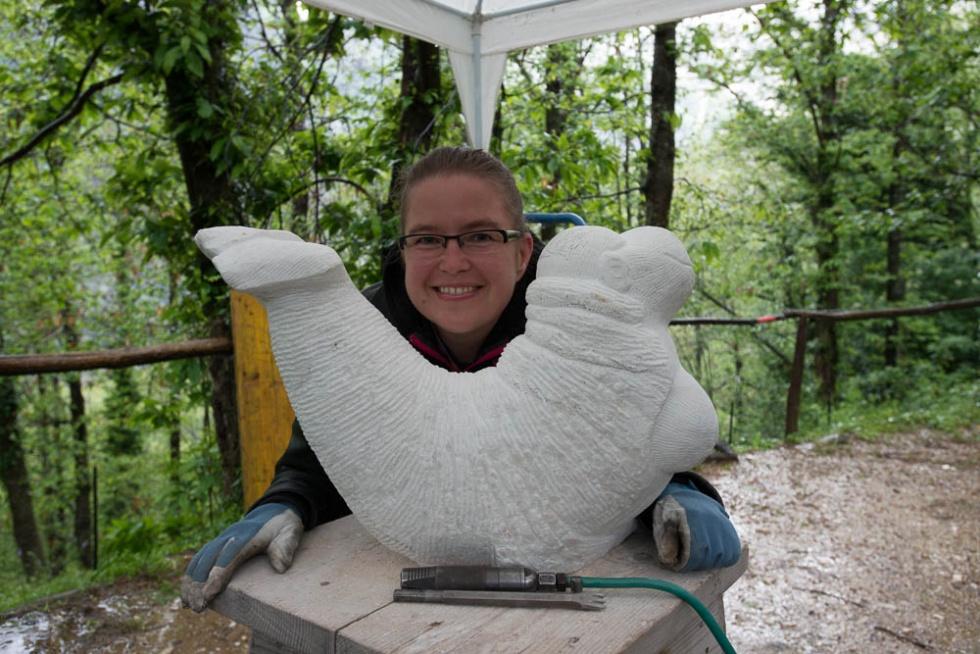
How would you like to conclude this conversation?
U.G. I would like to conclude with a blessing from the Iona community:
“God the Father, who shakes heaven and earth,
Jesus, whom death could not hold,
Spirit, the flame that burns to challenge and heal us,
Triune God, write your good news in our hearts,
Bless and guide us and send us into the world as living letters of your word. Amen.”


